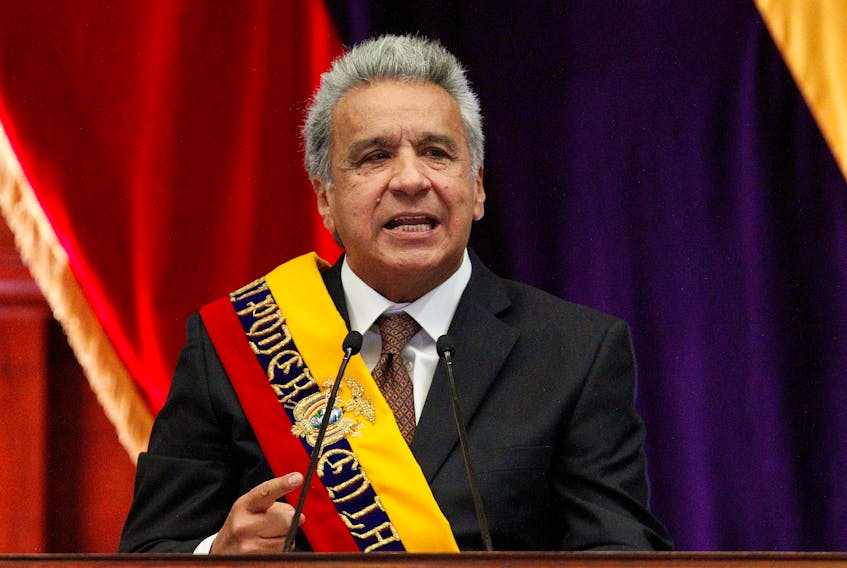A Pacific coast country in South America which has seen its share of troubles over the decades continues to do so.
Ecuador, which has a population of 17 million, has a long history of political and economic instability.
There have been periods of democratic rule, but they did not last all that long. Its economy, also, is nothing to brag about.
President Lenin Moreno, elected in February 2017, recently announced a two-billion-dollar fiscal reform package that led to street protests and transport strikes. The reform measures are aimed at improving the country’s economic revenue.
On Oct. 3 he declared a 60-day state of emergency in response to the nationwide protests that followed in the streets of the capital, Quito, and Guayaquil, the country's largest city. After thousands of protesters stormed the parliament building in the capital a few days later, he moved government operations to Guayaquil.
The measure suspended some civil rights, allowed authorities to commandeer public or private property and empowered the military to keep order.
Moreno also announced that Ecuador would be leaving the Organization of Petroleum Exporting Countries (OPEC), of which it is the smallest member, on Jan. 1, 2020 to increase its oil exports beyond the restrictions imposed by the group.
Prior to Moreno taking office, the country had been governed by President Rafael Correa for a decade.
He won the presidency in 2006 on a platform criticizing the established political elites.
But Correa’s left-wing economic policies left Ecuador with high levels of public debt.
By the end of his tenure, reliance on oil, public expenditures, and international pressure caused a recession, resulting in government spending being slashed.
His governing leftist Alianza PAIS (Country Alliance) party threw its support behind Moreno after Correa left office. But the current president has been forced to clean up the mess left behind by his predecessor.
Among other measures, Moreno was forced to negotiate a $4.2 billion deal with the International Monetary Fund in February by instituting the current austerity policies.
Corruption has been an endemic problem in the country. When he was elected, Correa announced a “revolution against corruption.”
But this revolution never materialized. Instead, Correa eliminated the feeble anti-corruption mechanisms already in place and reduced the anti-corruption budget.
Last year Correa himself was charged with corruption as well as for his alleged involvement in the kidnapping of a rival lawmaker in 2012. He faces up to 12 years in prison if found guilty.
The most serious charges against Correa involve allegations that he took millions of dollars in cash from the Colombian FARC guerrilla group to finance his campaigns, and in exchange gave them free rein along the Colombian-Ecuadorian border.
As well, Correa’s repressive policies toward the media were described by Human Rights Watch as “Orwellian.” He also allowed WikiLeaks founder Julian Assange to take refuge in the Ecuadoran Embassy in London.
Some of his former aides are already in prison, while Correa himself now lives in exile in Belgium.
A referendum designed to frustrate any attempt by Correa to return to power, which was approved by 64 per cent of the voters in February 2018, limits presidents to two terms, blocking him from running in the 2021 presidential election.
Even if he never comes to trial, the Correa era is over in Ecuador.
Henry Srebrnik is a professor of political science at the University of Prince Edward Island.









